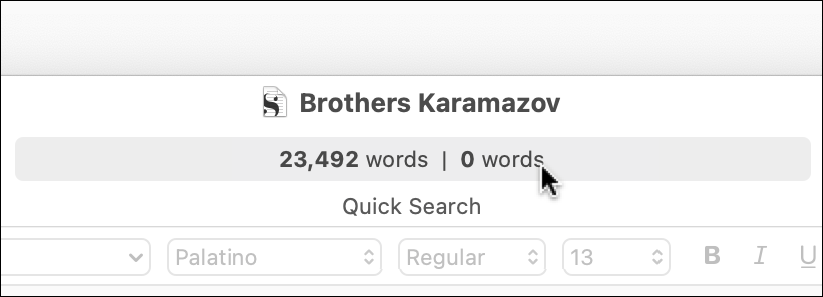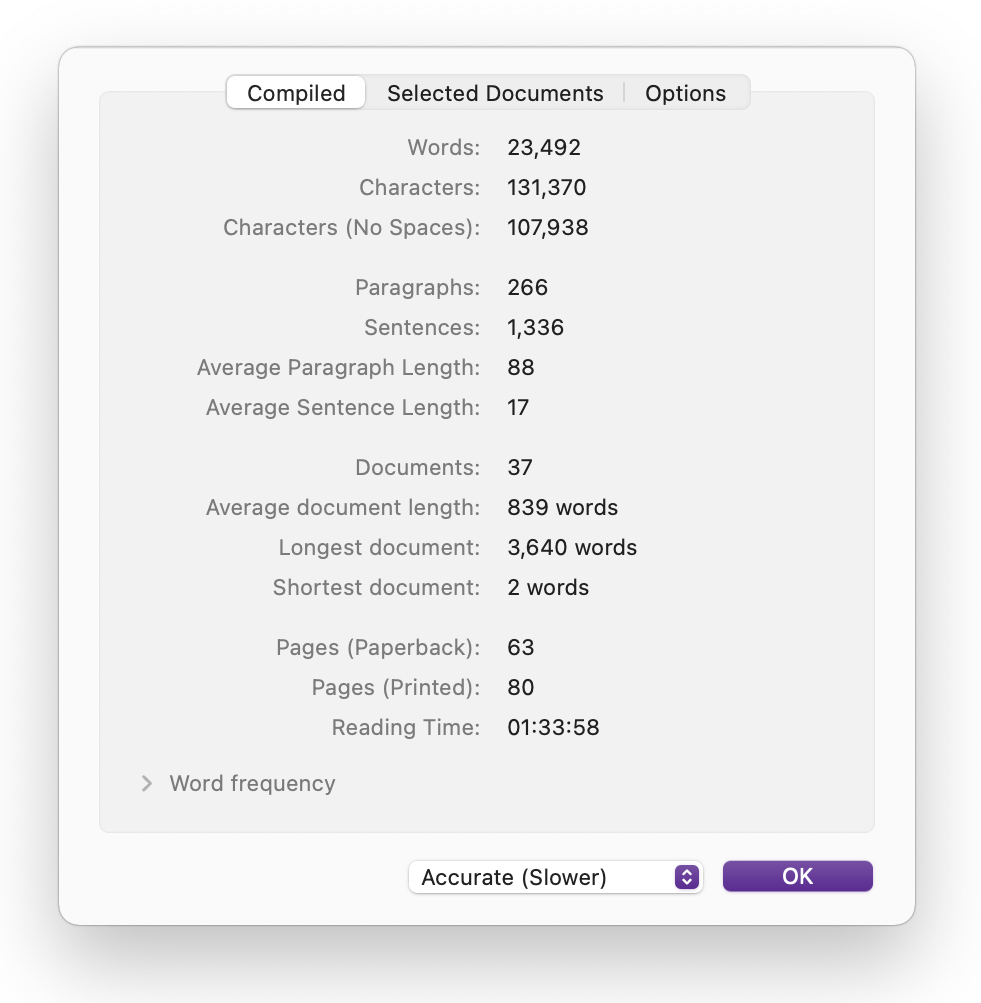When you’re writing a novel or another long project, it’s a good idea to have a daily target. How many words should you write, and when should you finish your writing session?
How Much Should You Write Each Day; and When Should You Stop Writing?
When you’re writing a novel or another long work, it’s like running a marathon, not a sprint. You won’t finish it in a few days or a week, and you have to work at a rhythm that allows you to remain creative and achieve the appropriate word count over time. Slow and steady writing will eventually get you to your goal.
How much should you write each day?
If possible, it’s a good idea to write every day, even if you can’t write very much each day. You can set a target, which isn’t a hard goal, but which is something to aim for. Some writers are happy with 500 words a day, others with 1,000 words, and some, who write full time, may even strive to write 2,000 words a day. If you do the math, even if you only write five 500 words a day, that comes to 130,000 words in a year. That means you can write the first draft of a novel - with room to spare - in twelve months, if you remain consistent.
Many writers can’t write every day, so they set aside a couple of days a week to write. If you plan to write 1,000 words a day for two full days a week, that’s more than 100,000 words a year. The key is consistency and maintaining your momentum.
How do you decide how many words to write a day? A lot depends on how experienced you are, and what your writing rhythm is. In On Writing, Stephen King says, “As with physical exercise, it would be best to set this goal low at first, to avoid discouragement. I suggest a thousand words a day, and because I’m feeling magnanimous, I’ll also suggest that you can take one day a week off, at least to begin with. No more; you’ll lose the urgency and immediacy of your story if you do.“
Anthony Trollope had a day job at the General Post Office, but he would write before going to work. “It was my practice to be at my table every morning at 5.30; and it was also my practice to allow myself no mercy. [...] It had at this time become my custom, and it still is my custom, though of late I have become a little lenient to myself, to write with my watch before me, and to require from myself 250 words every quarter of an hour.“ This meant that he could write up to 3,000 words each morning, and this is how he wrote dozens of novels and other works.
Scrivener has useful tools to help you set and meet targets. You can view the word count of your current document in the app’s footer, and you can view the total word count of your project by hovering your cursor over the Quick Search box in the toolbar.

You can also get detailed statistics of your project by choosing Project > Statistics:

And you can set and view targets for each writing session, and for your overall project.

When should you end your writing sessions?
So when should you stop writing? Should you set an alarm, time yourself, or write precisely for one or two hours? If your target is a word count, should you stop once you hit that number, or keep going if you feel the juices flowing?
Some writers push on to reach their daily sessions, but this can be counterproductive. When you’ve lost your mojo, there’s no point trying to force it. Sometimes, you just can’t meet your target.
Other writers may choose to end their writing session when they finish the chapter or a scene. The fact of completing something, even if you haven’t hit your session target, can be very satisfying.
However, some other writers like to end their writing session in the middle of a scene, paragraph, or even a sentence. Ernest Hemingway said, “The best way is always to stop when you are going good and when you know what will happen next. If you do that every day … you will never be stuck.“
And consider Anthony Trollope, who, if he finished a novel by 8:30 would immediately start writing the next one. This is probably not practical for most writers who need to work on multiple drafts to finish a novel. Trollope was immensely prolific, and, in his time, novels were not revised extensively, so he could easily move on to the next one at will.
It’s up to each writer to determine how much they should write and when they should end. Many factors influence this decision: how much time you have to write, how many days you can write, and what your writing goals are. It's a good idea to develop a rhythm, and you can take advantage of Scrivener’s features to set session and project targets to help you meet your goals.
Kirk McElhearn is a writer, podcaster, and photographer. He is the author of Take Control of Scrivener, and host of the podcast Write Now with Scrivener.

